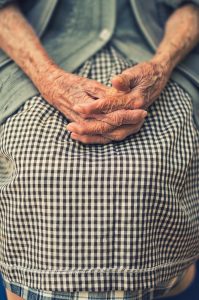 The U.S. Centers for Disease Control and Prevention (CDC) reports that one in four people over the age of 65 years falls each year. Of these falls, one in five leads to a serious injury like a traumatic brain injury or a broken bone. In fact, falling is the most common cause of concussions and more serious traumatic brain injuries. Following these falls, 2.8 million seniors are treated in emergency rooms for injuries and more than 800,000 of these seniors are hospitalized.
The U.S. Centers for Disease Control and Prevention (CDC) reports that one in four people over the age of 65 years falls each year. Of these falls, one in five leads to a serious injury like a traumatic brain injury or a broken bone. In fact, falling is the most common cause of concussions and more serious traumatic brain injuries. Following these falls, 2.8 million seniors are treated in emergency rooms for injuries and more than 800,000 of these seniors are hospitalized.
Many falls are related to medical conditions and age-related changes. However, they are not always innocent accidents. Seniors face a greater risk of falling when they are the victims of neglect and abuse. If your loved one has suffered one or more falls and you believe it is because of abuse or neglect, contact our experienced San Francisco elder neglect and abuse attorneys at Brod Law Firm immediately. We will thoroughly review your loved one’s situation to advise you on how to get them into a safer situation and their right to seek compensation for their injuries.
Falls Have Tragic Consequences
After an elderly person falls the first time, his or her likelihood of falling again increases significantly, according to the CDC. When a fall leads to a traumatic brain injury, the senior may suffer permanent cognitive changes. He or she may exhibit personality changes or have diminished executive functioning. What may have been second nature before, like simple math or understanding what written words, may become difficult. This could make it difficult for them to manage their household and finances on their own.
Bone fractures, such as a broken hip, can cause long-term disabilities and decrease an individual’s ability to live independently. If a senior does not heal well from the injury and treatments, he or she may never be as mobile. Once an elderly individual loses some ability to walk without a cane or walker, he or she is less likely to exercise and overall capabilities can diminish quickly. The results of a broken bone may force previously independent seniors to rely on family members, caretakers, or even more on a nursing home.
Causes of Falls in Elderly Individuals
There is no denying that seniors fall for reasons that have nothing to do with abuse or neglect. Many seniors start to lose their balance or muscle strength due to age, medical conditions, and medications. Seniors who do not see well are more likely to trip. Unfortunately, not all falls occur truly by accident. Many are entirely preventable when a caretaker provides the appropriate standard of care and refrains from violence. The World Health Organization even lists unexplained falls and injuries as an indicator of elder abuse.
Neglect by an at-home caretaker or nursing home staff member easily leads to falls. Caretakers at home or in a facility are there to help a senior get around. If an elderly person has mobility issues, caretakers should not let him or her walk around or perform activities without being next to them or without the proper assistive devices. Additionally, caretakers who know the seniors have difficulty getting around or seeing need to ensure their paths are clear of hazards like rugs, cords, and clutter.
While neglect contributes to falls, so too does physical violence. When caretakers hit, shove, and otherwise physically assault seniors, their victims are much more likely to fall and suffer a serious injury.
Has Your Elderly Loved One Suffered From Falls?
If your elderly loved one has an in-home caretaker or lives in a nursing home and has suffered one or more falls, contact us at Brod Law Firm today. It may be that your loved one suffered a fall by accident. However, you have the right to look into whether your family member has been a victim of abuse or neglect. If they have, then you should speak with our attorneys about the right for your loved one to recover compensation and hold the at-fault parties responsible.
To learn more about how our elder abuse and neglect lawyers can help, contact us at (800) 427-7020.
(image courtesy of Christian Newman)
 San Francisco Injury Lawyer Blog
San Francisco Injury Lawyer Blog

